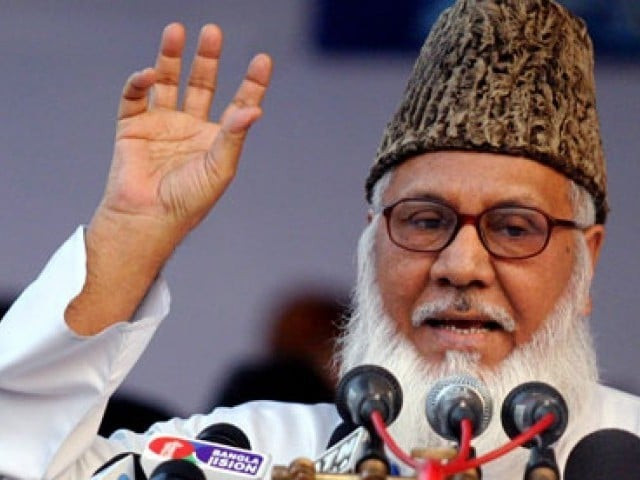Bangladesh's Jamaat-e-Islami leader asks court to commute death sentence
The country's war crimes tribunal handed down the sentence in October last year

Motiur Rahman Nizami. PHOTO: REUTERS
The country's war crimes tribunal, set up in 2010 to investigate abuses during the independence war in 1971, handed down the sentence in October last year.
"Considering his age and physical condition, we appealed to reduce the gravity of the punishment," Motiur Rahman Nizami's defence lawyer Khandaker Mahbub Hossain told Reuters.
"According to official documents he is 73 years old, but his real age is more than that and he has been suffering for four months from different (health) complications, because of which the trial has been suspended for that period," he said.
Dhaka executions: Bangladesh protests ‘unacceptable remarks’
The prosecution will resume arguments in the case on Dec 7.
Attorney General Mahbubey Alam told a news briefing that, for the first time, a Jamaat member had confessed to committing war crimes during the 1971 conflict, but Hossain denied Nizami had made any such admission.
Bangladesh executed two opposition leaders last month for war crimes.
Islamist leader Ali Ahsan Mohammad Mujahid and Salauddin Quader Chowdhury, from the Bangladesh Nationalist Party (BNP), were hanged shortly after President Abdul Hamid rejected their appeals for clemency.
Muslim-majority Bangladesh has seen a rise in religious militant violence in recent months, with two foreigners and four secular writers and a publisher killed this year.
Prime Minister Sheikh Hasina opened an inquiry into crimes committed during the war five years ago, paving the way for prosecutions by a tribunal that radicals have denounced as part of a political campaign to weaken Jamaat-e-Islami's leadership.
The government denies accusations of interference in the judiciary.



















COMMENTS
Comments are moderated and generally will be posted if they are on-topic and not abusive.
For more information, please see our Comments FAQ